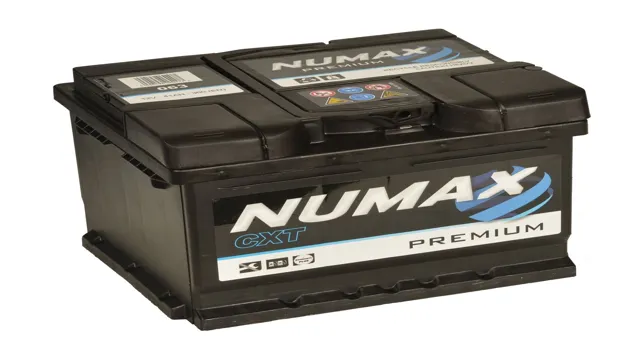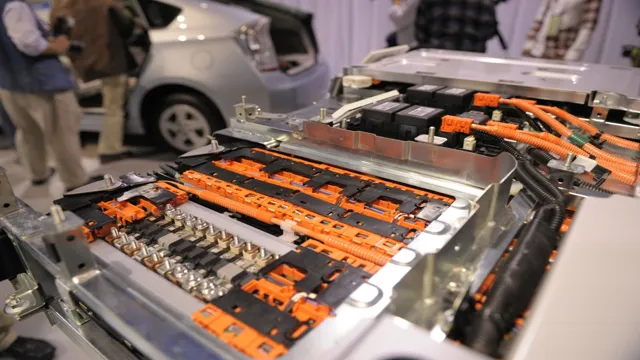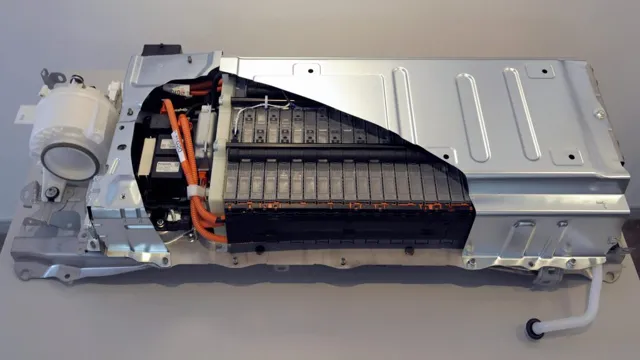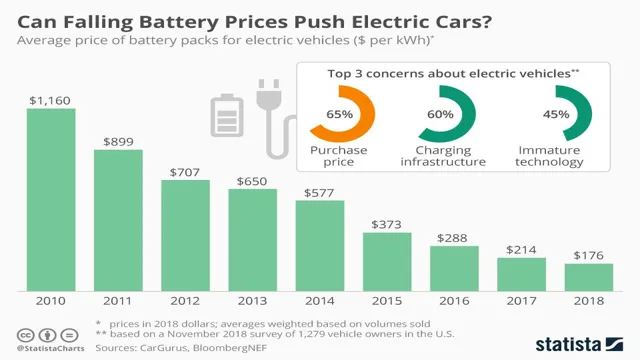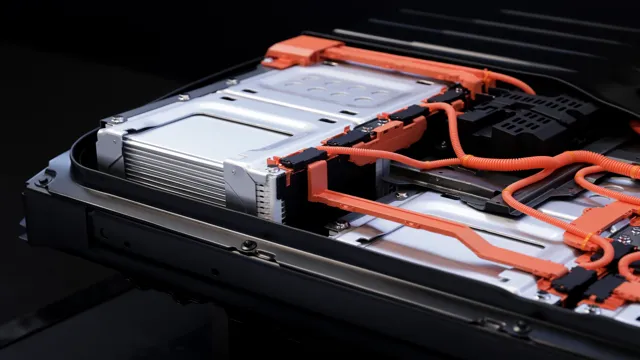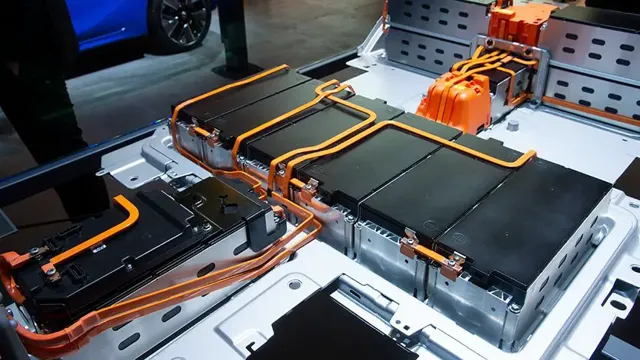The Power Behind Electric Cars: Exploring the Wonders of 12V Batteries
Electric cars have been making waves in recent years, with more and more people opting for these eco-friendly vehicles. However, have you ever wondered why electric cars use 12v batteries? While most of us are familiar with the traditional lead-acid batteries used in gasoline-powered vehicles, it’s interesting to note that electric cars operate differently. In this blog, we’ll delve deeper into why electric cars use 12v batteries, how they differ from their gasoline-powered counterparts, and what benefits this brings to the table.
So fasten your seatbelts as we embark on an electrifying journey!
Efficient Power Management
One key component of efficient power management in an electric car is the 12v battery. This battery is responsible for powering the auxiliary systems of the vehicle such as the lights, radio, and air conditioning. It also plays a crucial role in starting the car’s main drive battery.
To ensure maximum efficiency, it’s important to properly maintain and monitor the 12v battery. Checking the battery’s voltage regularly and keeping it charged can prevent issues with starting the car and prolong the battery’s lifespan. Additionally, utilizing energy-saving features such as regenerative braking and idle shutdown can help reduce the strain on the 12v battery and improve overall power management in electric cars.
By optimizing the use of the 12v battery, electric car owners can enjoy a more efficient and reliable driving experience.
Electric Car Components That Rely on 12v Batteries
Electric car components that rely on 12v batteries are crucial for the smooth operation of an electric vehicle. These components include lighting, audio, and infotainment systems, as well as various safety features such as airbags and electronic stability control. Efficient power management is essential to ensure that these components run smoothly and don’t drain the battery excessively.
One way to achieve efficient power management is through the use of a DC-DC converter, which allows the 12v battery to be charged by the main electric drive system. This not only ensures a consistent power supply to the various 12v components but also helps to reduce the load on the main battery, allowing it to be more efficient. Another key component of efficient power management is the use of intelligent power distribution systems, which monitor the power usage of different components and adjust power distribution accordingly.
In this way, electric vehicle designers can ensure that the 12v components get the power they need while minimizing waste and maximizing overall efficiency.
Difference Between 12v Batteries in Electric and Gas Cars
When it comes to the difference between the 12v batteries in electric and gas cars, efficient power management is essential. Both types of cars require a small 12v battery to run essential components like the lights, radio, and climate control. However, electric cars have an additional load on their 12v battery as it powers the auxiliary systems like the power windows, doors, and infotainment system.
This means that electric cars require a larger 12v battery with higher capacity to handle these extra loads efficiently. Gas cars, on the other hand, have a smaller 12v battery that does not have to deal with these additional loads, making it more efficient in terms of power management. Therefore, choosing the right size and capacity of the 12v battery is crucial in ensuring efficient power management in electric and gas cars alike.
Challenges of 12v Batteries in Electric Cars
The 12v battery in electric cars is a critical component that often goes unnoticed by most people. Although the obvious power source for electric cars is their main battery pack, a secondary 12v battery is necessary to power all the traditional electronic systems such as air conditioning, headlights, and dashboard displays. However, this battery presents a unique set of challenges such as sulfation, parasitic load, and low voltage warnings.
Sulfation occurs when the battery is partially discharged for prolonged periods, which leads to the buildup of sulfate crystals, reducing the battery’s lifespan. Parasitic load refers to the constant draw of power to maintain the car’s settings, even when the car is not in use, leading to unexpected power drain. Drivers also frequently experience low voltage warnings, especially when the car has been sitting idle or when starting in cold weather.
Addressing these challenges requires proper maintenance and attention to the 12v battery, something that many electric car drivers often overlook.
Heat and Cold Resistance
The challenges of 12v batteries in electric cars include heat and cold resistance. Electric cars have small 12v batteries that are used to power various components such as the lights, radio, and air conditioning. However, ensuring these batteries can operate efficiently in extreme temperatures is a significant challenge.
Hot temperatures can cause the battery to overheat and degrade faster, while cold temperatures can reduce the battery’s capacity and cause it to take longer to charge. Manufacturers have been tackling this issue by developing battery management systems that can monitor and adjust the temperature of the battery. Additionally, new battery technologies that use solid-state electrolytes instead of traditional liquid electrolytes can improve battery performance in extreme temperatures.
As electric cars become more commonplace, advances in battery technology will continue to be crucial for ensuring they can operate efficiently in a variety of climates.
Battery Life and Replacement
The challenges of 12v batteries in electric cars are a widely discussed topic among car enthusiasts. One of the biggest challenges is the battery life and replacement process. Unlike traditional gasoline cars, electric cars use a 12v battery to power their lights, radio, and other auxiliary systems.
However, this battery also plays a crucial role in starting the car’s main battery pack. The frequent start-stop cycles of the car put a lot of stress on the smaller 12v battery and can shorten its lifespan. Commonly, the 12v battery needs to be replaced every 3-5 years, depending on usage.
It’s important to keep a close eye on the battery’s health as a failing battery can leave you stranded. Replacing the battery in an electric car can be a little more complicated than in a gasoline car. In a gasoline car, you can simply replace the battery and be on your way.
In an electric car, the 12v battery is usually located under the hood, and the main battery pack is located underneath the car. It’s important to take your car to a certified technician who specializes in electric cars to ensure a safe and successful battery replacement. Overall, while the challenges of 12v batteries in electric cars exist, with proper care and maintenance, electric car owners can ensure a long and sustainable battery life.
Safety Features
When it comes to electric cars, safety is always a top priority. However, the use of 12v batteries in these vehicles presents some unique challenges. While 12v batteries are common in traditional gas-powered cars and handle tasks such as starting the engine, in electric cars, they are not as critical.
Instead, they are used to power safety features and accessories like the radio, headlights, and air conditioning when the vehicle is not running. This means that the 12v battery charged by the main battery needs to have backup systems to keep these features running in case of a power failure. One way electric car manufacturers have addressed this challenge is by installing a DC-to-DC converter that can regulate the voltage output of the 12v battery and charge it back up when necessary.
Another solution is the use of backup capacitors that can power the safety features long enough for the driver to safely pull over if the main battery runs out of juice. Despite these challenges, electric car manufacturers are continuously improving safety features to provide drivers with peace of mind on the road.
Choosing the Right 12v Battery for Your Electric Car
When it comes to electric cars, the 12v battery plays an important role in powering the vehicle’s accessories, such as lights and electronics. When choosing the right 12v battery for your electric car, it’s important to consider factors such as size, weight, and compatibility. It’s also essential to consider the battery’s capacity and lifespan, as these factors can impact the performance and longevity of your electric car.
Thankfully, many reputable battery brands offer a range of options that can meet your electric car’s needs. Ultimately, it’s important to do your research and consult with your electric car manufacturer to ensure that you choose the right 12v battery to power your electric ride. So, choose wisely and hit the road with confidence!
Factors to Consider When Selecting a New Battery
When it comes to selecting a new battery for your electric car, there are a few important factors to consider. Firstly, it’s important to choose a battery with the appropriate voltage for your vehicle, typically a 12v battery. Secondly, you should consider the battery’s capacity, which refers to the amount of energy it can store.
A higher capacity battery will allow you to travel further on a single charge. Additionally, you should consider the type of battery, as different types have varying performance and longevity. For instance, lithium-ion batteries are known for their high performance and longevity, but they are also more expensive than other types.
Finally, it’s important to choose a battery from a reputable manufacturer that offers a warranty to ensure that you are getting a high-quality product. By considering these factors, you can choose the right 12v battery for your electric car that will provide reliable and efficient performance on the road.
Top Brands for Electric Car 12v Batteries
Electric Car 12v Batteries When it comes to choosing the right battery for your electric car, there are a variety of factors to consider. One of the most important factors is the brand of the battery. Some of the top brands for electric car 12v batteries include Tesla, Nissan, and BMW.
Each of these brands has a reputation for producing high-quality batteries that are both reliable and durable. Tesla, in particular, is known for its innovative battery technology and has been at the forefront of the electric car revolution. Another important factor to consider is the capacity of the battery.
The higher the capacity, the longer your electric car will be able to run on a single charge. Ultimately, the right battery for your electric car will depend on your specific needs and the type of driving you will be doing. By taking the time to research different brands and capacities, you can find the perfect battery to power your electric car for years to come.
Conclusion: The Importance of 12v Batteries in Electric Cars
In conclusion, the 12v battery in an electric car may seem like a small component, but it plays a crucial role in powering essential systems such as the lights, radio, and HVAC. It’s like the unsung hero that keeps the show going, while the bigger batteries steal the limelight. So, the next time you’re cruising around in your electric vehicle, give a little nod of thanks to the trusty 12v battery, because without it, you’d be in the dark.
“
FAQs
Why do electric cars use 12v batteries?
Unlike traditional gasoline cars, electric cars use 12v batteries to power auxiliary equipment such as lights, electric windows, and infotainment systems.
How long should a 12v battery in an electric car last?
The lifespan of a 12v battery in an electric car varies depending on usage and driving conditions, but typically lasts anywhere from 3 to 5 years.
Can a dead 12v battery affect the performance of an electric car?
Yes, a dead or failing 12v battery in an electric car can affect the performance of the vehicle, including reducing the range and causing problems with starting and charging.
Can a regular car battery be used in an electric car instead of a 12v battery?
No, a regular car battery cannot be used in an electric car in place of a 12v battery because electric cars have a different power system that requires a specific type of battery. It is important to always use the appropriate battery for your electric car.

